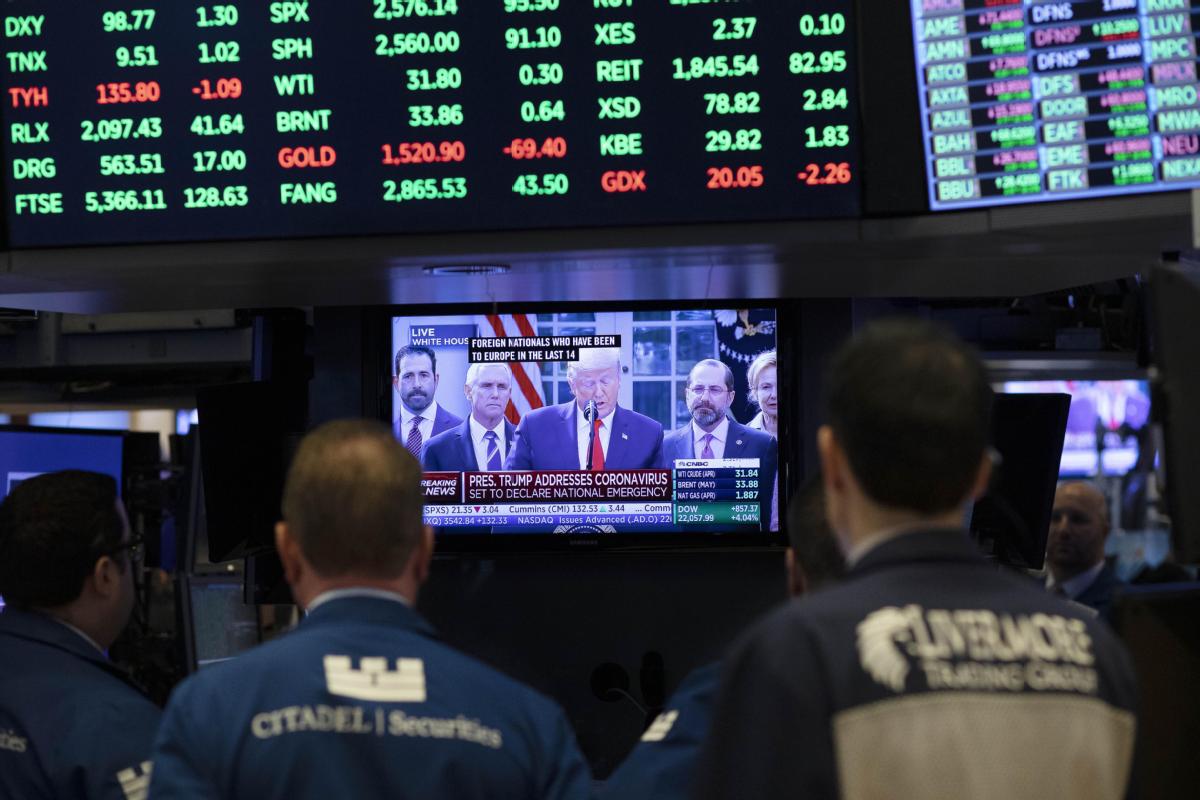For some, COVID-19 is not all gloom and doom
By SCOTT REEVES in New York | China Daily | Updated: 2020-03-16 10:15

Many major companies in the US can already see better results on the horizon
The market downturn has forced investors to take a new look at stocks in a world shaken by coronavirus fears, shifting from aggressive growth stocks into defensive buys as volatility flares.
But there is long-term growth ahead despite short-term pain. The US economy remains fundamentally strong, unlike the environment investors faced when the subprime housing market collapsed in 2008, leading to a deep and prolonged recession.
Disruption of supply chains because of the coronavirus, especially in China, could limit sales, depress company earnings and tip the US into a recession. If so, analysts debate whether the recovery will come in the form of a sharp decline followed by a quick rebound or a more gradual decline followed by a trough and a slow recovery. But no one seems to expect The Four Horsemen of the Apocalypse to ride into town and permanently whack the economy.
Nevertheless, there is trouble ahead. Because of the outbreak, big companies, including Apple, Microsoft, Host Hotels and Resorts, Delta Airlines and American Airlines, have trimmed earnings estimates.
"We will have more volatility until the economy adjusts to supply chain disruptions," Manish Shah, chief investment officer at Tollboth Strategy, told China Daily.
Two companies will benefit immediately from the fight against the coronavirus, he said: Quest Diagnostics, a Fortune 500 Company, and Laboratory Corporation of America, known as LabCorp.
Both companies offer testing and provide extensive databases. This allows doctors to better treat their patients and helps researchers track development of a disease to better understand how to combat it.
"In the next few months the government will ramp up testing, monitoring and will work on a vaccine," Shah said. "But these companies will grow regardless of what happens to the coronavirus over the next five years."
Amazon, eBay and PayPal will benefit from a move to e-commerce as the public avoids face-to-face transactions during the coronavirus outbreak and, in increasing numbers, moves away from brick-andmortar stores, Shah said.
Many companies are avoiding, or at least limiting, travel as the virus, also called Covid-19, spreads. This creates increased demand for video conferencing. Shah likes Zoom Video Communications, a Californian company offering communications software that combines video conferencing, online meetings and mobile chat.
Rebound expected
Shah said he expects airfreight companies such as FedEx and UPS to rebound before commercial airlines. Passengers must be convinced the coronavirus outbreak is over and some may fret about boarding the troubled Boeing 737 MAX when it returns to service. The need to ship key components will rebound as the economy revives.
The New York investment bank Goldman Sachs said in a research note to investors: "By year-end economic and earnings growth will be accelerating, the Fed Funds rate will be at the lower, and the impact of any fiscal stimulus will be flowing through to consumers.
"Under this scenario, equities will appear attractive relative to bonds and cash. Investor sentiment will improve as policy uncertainty abates following the US election (in November)."
Goldman Sachs recommends that investors increase holdings in the information technology and real estate sectors while generally avoiding energy, financials, healthcare, consumer discretionary products and consumer staples.
Analysts at the investment bank expect company earnings to fall this year, but rise sharply next year. A decline in earnings could make the current valuations of many stocks too high.
"We continue to expect a severe decline in Chinese activity in the first quarter, lower end-demand for US exporters, supply chain disruption and a slowdown in consumer activity," Goldman Sachs said.
"However, we also incorporate the impact of lower-than-expected oil prices and bond yields. We expect the economic weakness will ultimately be short-lived, with much of the lost activity recouped in 2021."
























